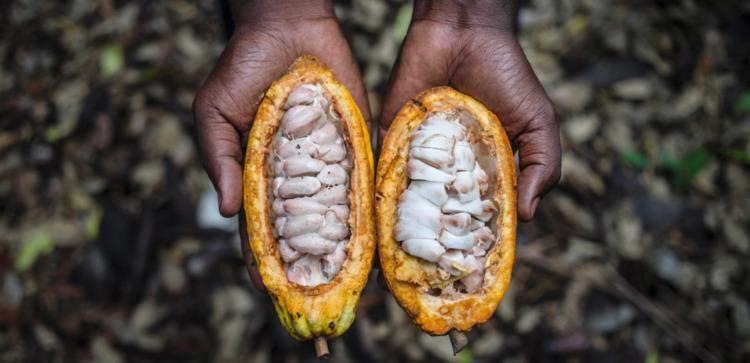- The number of people demanding food supply has kept increasing since 2015 from 1.1 million to 2.7 million
- Scarce and high-cost broadband access is holding back the economic transformation of Cameroon
- World Bank has provided Cameroon with US$100 million to support its efforts towards promoting digital inclusion
Farming is very vital to Africa, and in Cameroon agriculture is a core part of the economy. Cameroon like other African nations has been experiencing challenges, unfortunately, the lower-middle-income country is facing food insecurity problems since 2013.
World Bank, one of Africa’s funders, has been eyeing climate change mitigation initiatives toward agriculture, via its international Development Association (IDA) wing. On September 28 2021, the WB provided Cameroon with US$100 million to support its efforts towards promoting digital inclusion and the use of the digital solution in the agriculture sector (World Bank).
Read: Agriculture stakeholders in Africa call for collaboration to boost food systems
Climate change has been at the centre of farming challenges in Africa, and in Cameroon, the water crisis has been a nuance as Lake Chad water shrinks over the surface area by 90 per cent.
Aid and International Development Forum (AIDForum) argues that due to erratic weather conditions driven by climate change agricultural production in Cameroon has declined and farmers have struggled to sustain their livelihoods.
Technically, smart agriculture is rather a very useful tool for farmers in Cameroon as it was largely self-sufficient in food 20 years ago but it now imports a large number of basic food supplies (AIDForum).
Agricultural situation in Cameroon
As the number of people demanding food supply has kept increasing since 2015 from 1.1 million to 2.7 million, Cameroon is striving to keep its farming systems updated and strong. According to the Aid and International Development Forum, 57 per cent of the rural people live in poverty.
Cameroon has more than 28 million people and like the rest of other African nations, it is endowed with rich natural resources, including oil and gas, but more importantly, Cameroon has a wide variety of agricultural products, such as coffee, cotton, cocoa, maize and cassava.
However, farming in Cameroon has been taken seriously and numbers show it. Cameroonian agriculture market is projected to grow at a rate of 6.52 per cent throughout 2020 to 2025, according to Mordor Intelligence, market intelligence and advisory firm.
“Agriculture in Cameroon represents more than half of the country’s non-oil export revenues and employs almost 60 per cent of the working population. About 90 per cent of Cameroonian rural households are, in one way or another, employed in agriculture, and approximately one-third of them earn their livelihood from the export of crops” according to Mordor Intelligence review.
Read: A gender-smart path towards sustainable agriculture
Further on that note, Cameroon farmed crops range from traditional food crops (millet and maize) to export crops (banana, cocoa, coffee, and cotton) as well as less traditional crops (onion, green beans, wheat, and rice) produced for local consumption or export.
World Bank levitating Cameroon farming systems
According to the World Bank publication, the Acceleration of the Digital Transformation of Cameroon projects anticipates cover three things, supporting the improvement of the strategic, policy and regulatory environment for the emergence of a vibrant, safe, and inclusive digital economy.
Further, the project two goals are focused on reducing the geographic and societal digital divides affecting primarily rural areas and facilitate the implementation of data-driven solutions to boost innovation in the agriculture sector.
This valuable project is cemented on three main components, enabling strategy, policy, and regulation for digital inclusion and transformation. Focus on digital connectivity and inclusion is the second component and implementation of data-driven solutions in the agriculture sector.
Read: Africa’s food security relies on climate smart agriculture
On that note, Cameroonians in rural areas—which World Bank argues to include, general population, public and private sector and end-users stand to benefit from “affordability of broadband internet, connecting public buildings such as hospitals, schools, and local government offices, fostering digital entrepreneurship, and providing support to smallholder farmers and producer organizations to promote the adoption of innovations developed by agritech startups,”
“Scarce and high-cost broadband access is holding back the economic transformation of Cameroon and its resilience to shocks like COVID-19. By supporting reforms in policies, regulations as well as strengthened institutional capacity the project will improve broadband access and help stimulate growth and innovation, foster competition, and facilitate investment in the digital economy and the agricultural sector”, said Abdoulaye Seck, World Bank Country Director for Cameroon.
Also, World Bank noted that the project will support increased economic growth, productivity, and job creation, both within the digital and agricultural sectors and through spillover effects on other productive sectors.
With this support, Cameroon stands to uplift its agricultural products market benefits. According to Mordor Intelligence records, maize accounts for more than 80 per cent of the local food crop production in Cameroon.

